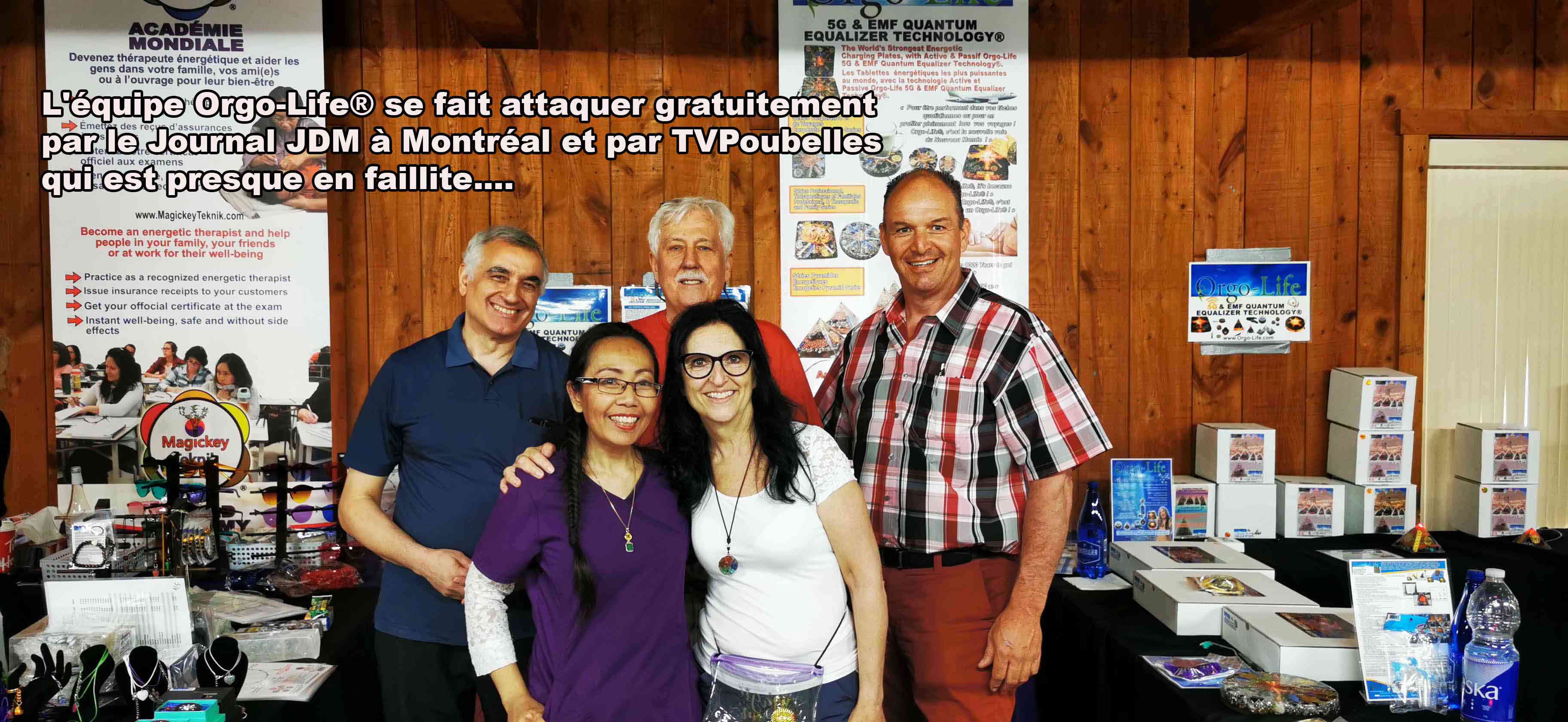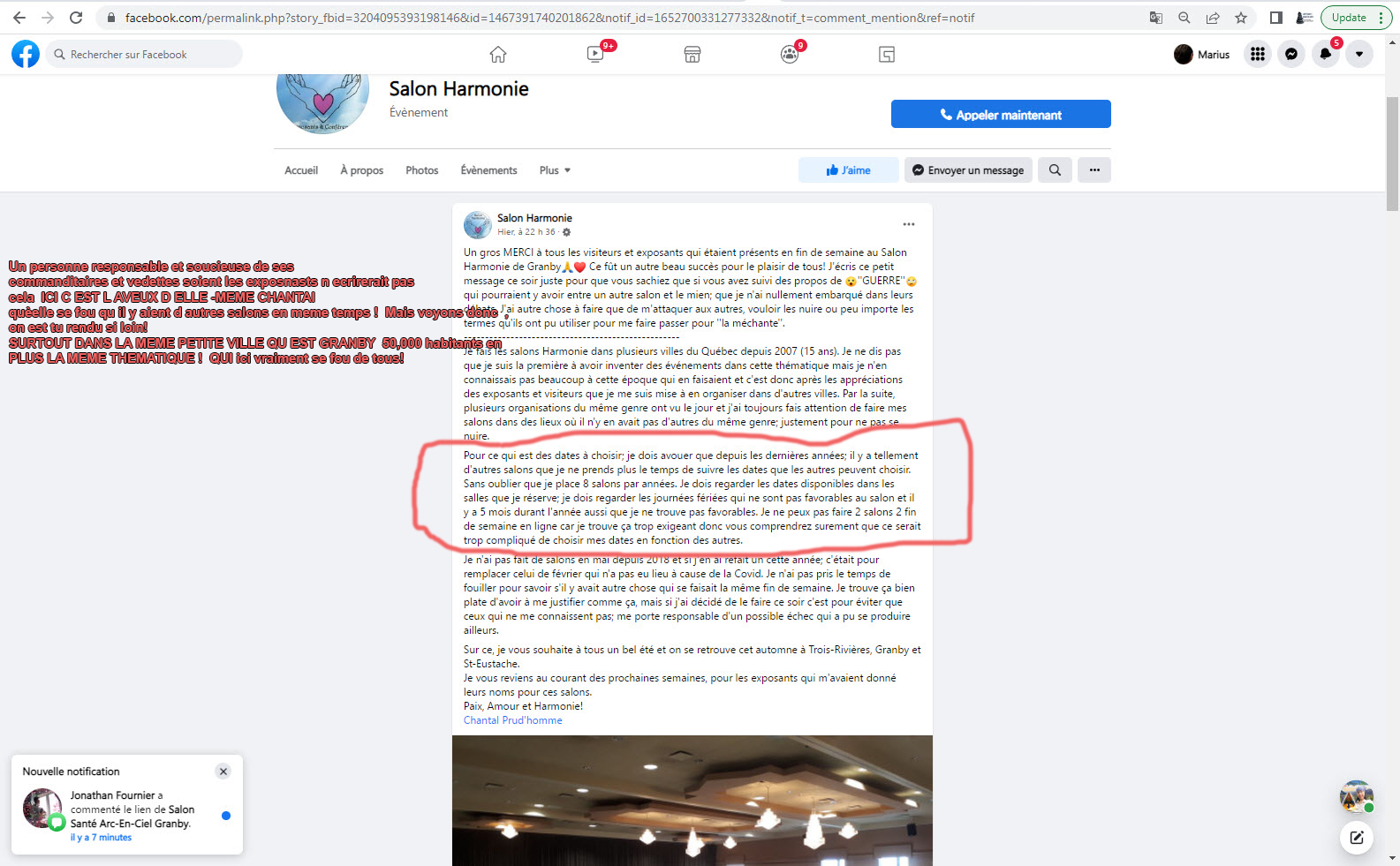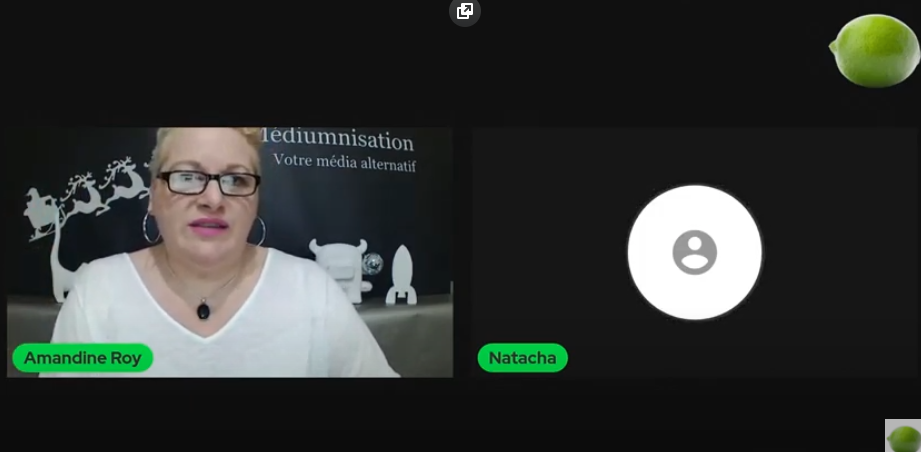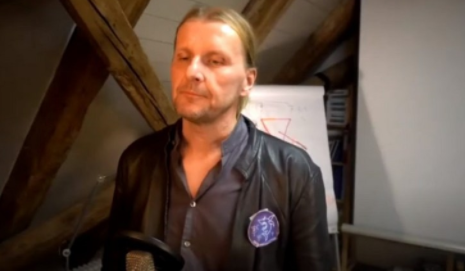
Surrounded Türkiye
Today, Türkiye is surrounded in the south by Israel, the UAE, Saudi Arabia, the Greek Cypriot Administration and the proxy forces of the USA such as the PYD/YPG; in the west, by the sea-air superiority of the United States, France and Greece; in the north by the NATO’s conflict scenarios with Russia over the Ukraine war; in the east, it has been surrounded by scenarios indexed to the possible collapse of Iran and has been placed under a multidimensional containment.
Despite moves such as Israel’s brazen and blatant declaration of Türkiye as a target (May 11, Jerusalem Post) before its ceasefire demand via USA against Iran and the U.S. exercise in Alexandroupolis, Ankara is still feeling safe in the NATO, which delays strategic decisions. This geopolitical siege is no longer classic. It has become a strategic, asymmetrical and psychological blockade. It cannot be said that Türkiye has yet to meet this picture with a holistic strategic approach. This picture must be broken not only by classical armament, but also by asymmetrical and psychological deterrence. Today, instability, demoralization and insecurity prevail on Türkiye’s domestic front. The public does not understand why a new Kurdish Initiative and work on a new constitution have started in parallel with the fact that terrorism has been eradicated after the “trench wars” won against the PKK terrorist organization in March 2016 with more than 400 martyrs.
On the other hand, public is seriously concerned of tens of thousands of PKK affiliates in Syria thru the presence of the PYD/YPG under the almost operational command of the US and Israel. In the north, especially because of Romania’s voluntary and enthusiastic proxy role, we are vulnerable to NATO fait accompli and even false flag operations against Russia. Similarly, Azerbaijan’s ever-evolving strategic relationship with Israel rightly causes concern in Türkiye. In the West, we have not been able to go beyond being a spectator to Greece’s US-led Europe Defender 2025 exercise in Alexandroupolis, which is against Türkiye, although it is not overtly announced. Since November 2020, we have completely withdrawn and suspended all seismic and drilling activities in the Eastern Mediterranean, Blue Homeland.
In short, although the physical conditions are different from the conjuncture of the Mudros Armistice of October 30, 1918, a serious psychology of siege and division on the domestic front prevails in the socio-psychological environment and society.
The State of U.S. Hegemony
Despite the dark picture in question, the US hegemony, which has created this picture, is on the verge of crisis in the competitive environment between the globalists, who represent finance capital, and the MAGAists, who say America First. However, both groups are dominated primarily by globalists, pro-Israel Zionists and evangelicals.
In May, the anti-ICE riots in Los Angeles turned into looting and a rehearsal for civil war, and for the first time in years, Marines were used in addition to the National Guard. Some states are in the rhetoric of secession. Trust in Trump in January 2025 has fallen far short today. The United States, which is seen as the leader of the rules-based international order and champion of human rights after the Cold War, continues to remain silent about the inhumane practices in Gaza, amounting to genocide, and some senators go so far as to say that we should drop a nuclear bomb on Gaza. By supporting Israel’s attack on Iran on June 13, 2025, ignoring international law, and by launching a direct air strike on Iran on June 22, USA continues to shake the legitimacy of the system established after 1945 altogether and radically. The USA almost destroys the old order with its own hands and creates the distorted infrastructure of the new order to be established.
.
California National Guard in Los Angeles. (Public Domain)
.
The United States, which has long been questioned for its interventions in Kosovo, Iraq, Afghanistan, Libya, Syria, Ukraine and most recently Iran, is today seen as neither a peacemaker nor a reliable mediator. These wars and tensions have been turning points that have accelerated the historical decline of American power. In the United States today, economic and military weakening are intertwined: public debt of more than $36.2 trillion, a declining manufacturing industry, downsizing of the navy, declining missile stockpiles due to the wars in Ukraine, Yemen and Iran, especially air defense, manpower crises and deepening internal polarization are accelerating this process of disintegration. Washington is no longer able to manage the crisis in Ukraine or Iran and impose its will.
In the United States, the most important institutions of the state are under the control of neocons and Zionists, especially Congress and the CIA. These structures can operate outside the control of the government. There are few politicians or opinion leaders in the United States that Israel cannot buy or blackmail over the Epstein files, especially through the power of finance capital.
On the other hand, the USA has lost its capacity to establish a balance in both the South China Sea and the Taiwan Strait, especially in the naval operations environment, let alone the economic balance against China. In the face of this regression picture, the Eurasian powers rising on the axis of Russia and China are deepening their strategic cooperation. Although India has started to get closer to the US and Israel instead of the Eurasian powers, especially after its short-term conflict with Pakistan in May, non-Western institutional structures such as BRICS and the Shanghai Cooperation Organization are becoming more effective in the global south. Iran has now completely lost its trust in the West. The options of military rapprochement with Russia and China and the development of nuclear weapons are seriously on the agenda. In this context, in the 12-day war in June 2025, the “myth of invincibility” that Israel had built on for years against Iran collapsed. Iran has been able to inflict heavy damage on Israel without even using its most advanced ballistic systems. For the first time in this war, Israel was the party that asked for a ceasefire, which created a serious psychological break.
On the other hand, Western defense technologies are losing their reputation. Systems such as Patriot, THAAD and Iron Dome were insufficient in the face of intense missile attacks. Success rates have been exaggerated through the media and propaganda, and vulnerabilities in strategic centers such as Haifa Port and Ben Gurion Airport have been concealed by censorship. The actual property damage amounts to hundreds of billions of shekels, but it is not made public.
On the other hand, instead of maintaining stability and peace, international institutions such as the IAEA, the UN and NATO have gradually turned into carriers of finance capital and collective western interests, and their institutional legitimacy has been damaged. In the power struggle, instead of conventional methods, unorthodox, technologically crafted assassination attacks or spectacular attacks with B2 bombers carrying 13-ton bombs and assaulting targets such as Fordow, which had a psychological effect rather than a physical effect, came to the fore. Despite these developments, Israel and the United States have achieved tactical successes but have suffered a strategic setback.
.

NASA FIRMS imagery 2025-06-19 of Fordow Uranium Enrichment Plant. (Public Domain)
.
The U.S. has taken on the role of a war instigator like a subcontractor, not with a superpower reflex, while Iran has become the real winner of the war by emphasizing diplomacy, moral superiority and geopolitical harmony. These developments will accelerate the transformation of not only West Asia but also the global balance of power. NATO, which is losing US support day by day, is becoming hollow, the European Union, whose economy is weakened by expensive energy and deindustrialization, is moving away from being a strategic subject, and the USA is turning into an uncoordinated and panicked entity of a collapsing hegemon as a power that cannot produce leadership and legitimacy.
The economic cost of the U.S. global military presence has also become unsustainable. This pressure on the national budget, along with the rise of social spending demands, has become a limiting factor in foreign policy options. Public debt/national income ratios and interest burdens are reaching an unsustainable point. With the shaking of the dollar’s position as a reserve currency, the sustainability of American financial hegemony has also been discussed. The acceleration of the de-dollarization process is eroding one of the most fundamental pillars of the global economic power of the United States. On the social level, the United States is no longer as integrated and resilient as it used to be. Political polarization, income inequality and identity-based conflicts weaken the capacity for collective action in moments of national crisis. The current picture clearly shows that the world is evolving into a polycentric structure and that the US-led order has lost its historical mission.
Our Deterrence
Türkiye is a state with strategic capacity and therefore a high level of potential deterrence in the light of its population, economic size and dynamic factors reached by its defense industry within the static framework of its unique geography and recent history. The conversion of this deterrence into kinetic energy will be a function of political will. On the other hand, the most fundamental feature of Turkish deterrence is its unpredictable uncertainty. This is not just a feature of the republican era.
British imperialism, which thought that the Turkish determination and will to fight had been destroyed by the great loss and defeat suffered by the politicized army in the Balkan War in the First World War, paid the price of attacking the Ottomans by being defeated in Çanakkale and Kut-Ul Amare. Although Germany admitted defeat and the Ottoman Government surrendered with the Mudros armistice on October 30, 1918, the Turkish nation under the leadership of Mustafa Kemal did not accept defeat and Treaty of Sevres. The Greek army was defeated by the Turkish nation, which rebelled despite having all the power of the empire behind it, first in Sakarya in 1921 and then in Izmir on September 9, 1922.
The victory of the War of Independence is an example 100 years ago that the Turks maintained their ability to come together and fight even in the most difficult conditions. There are few nations on the European continent that have not fought for 100 years. Turks are one of them. The continuation of the same spirit was seen in the determination and heroism of the Turkish brigade, which saved the American division from total annihilation in the Korean War in 1950, and then in the Cyprus Peace Operation in July 1974. 120 hours after the coup d’état of Nikos Sampson in Cyprus, the Turkish Armed Forces carried out a joint operation for the first time in its history and held the beach and air head within hours. Such a feat is rare in world military history.
The Turkish Armed Forces experienced its last success in the July 15, 2016, FETÖ coup attempt. Within the armed forces, Atatürk’s true cadres protected the nation by resisting the attempt of traitors disguised as soldiers under the command of the CIA, MI6, BND and Mossad to start a civil war. However, the measures taken by the government after 2016 were primarily the closure of military hospitals and military high schools, the separation of the Military Academies from the Force Commands, the opening of the door to the politicization of the army by connecting the General Staff to the political authority, the deterioration of the 67-year-old command and control chemistry between the force commands established after 1949 and the General Staff and the Ministry of National Defense, in the period when global, continental and regional balances were turned upside down and the fire around us was increasing day by day. It has affected our deterrence in a volatile geopolitical environment.
.

Abandoned military vehicle used during the putsch in Ankara, near the bombed building of Directorate of Police, 16 July (CC BY-SA 4.0)
.
Despite these negative developments, the developments in MİLGEM (national warship) and naval weapons and the increase in our UCAV manufacturing capability have partially balanced the developments after 2016. The fact that FETÖ became the largest cluster within the Turkish Armed Forces and that the command-and-control structure and manpower foundation were shaken under the leadership of the CIA and FETÖ between 2002 and 2016 through so called legal conspiracy cases led to the liquidation of experienced personnel and cultural/institutional accumulation to a great extent. Until 2016, most of these positions were filled by FETÖ and these treacherous cadres opened fire on their own people. It will take time for the cadres that require high merit, especially our pilot cadres, which became vacant because of the FETÖ purges, to return to their required statistics in all three forces.
Unfortunately, imperialism must take this weakness into account when making a judgment about the Turkish Armed Forces today. In short, with discourses such as the post-2002 EU process, so called Kurdish initiatives, democratization, and the abolition of military tutelage through institutions such as TESEV, fresh blood was given to FETÖ, the operation cell of imperialism within the Turkish Armed Forces, and it has come to this day. It may be that imperialist intelligence experts compare what happened today to what happened in the Balkan War. However, when they think about what the Turks achieved in the First World War and the War of Independence, I think they take a big gamble and take a big risk without calculation. After 2002, Türkiye may have caused great damage to itself with its own hands, which is very difficult to repair. However, despite everything, the recent history of the Turk is in place. The creativity of that history is far more dangerous than the risk of gambling.
Today, unfortunately, despite our strategic capacity, we are showing a weakened and ineffective image. The main reason for this situation is the imposition of the economic situation we are in. Our dependence on hot money causes serious weaknesses in deterrence. The USA, the owner of Finance Capital, the London bankers and their proxy Israel act with this awareness. Ankara’s silence in the face of maps and rhetoric directly targeting Türkiye, especially in the Israeli press, and the fact that the Kürecik Radar and the BTC Pipeline remain open show that deterrence has been eroded not only in foreign policy but also in public psychology. Türkiye’s red lines, despite AKP’s serious threats, it does not work. In this context, it seems that strategic preparation will only be triggered after a direct loss of territory or attack.
Another weakness of Türkiye is that it feels safe with NATO’s Article 5, which remains on paper. However, it is now understood that NATO will not use this clause for Türkiye, especially in a conflict with Israel or Greece. While the U.S. and some European countries impose an arms embargo on Türkiye through CATSAA for the U.S. and different sanctions for the EU, they send modern weapons to the PKK/PYD-YPG and accumulate weapons in Southern Cyprus. They welcome FETÖ fugitives in every environment, or they have the supporters among us write books and articles against Türkiye and remain silent in the face of Israel’s direct threats against Türkiye. In such an environment, NATO membership has turned into a restrictive binding instead of a deterrent for Ankara. Although Türkiye’s military technologies give a strong image, especially in the field of navy, submarine power and UCAV, they are insufficient in terms of strategic deterrence because Ankara does not have nuclear weapons. We have serious deficiencies in areas such as command-and-control infrastructure, air dominance and early warning systems.
On the other hand, the biggest negative impact on Türkiye’s deterrence is indecisiveness and lack of strategic vision. Strategic institutions have been weakened, decision-making processes are centralized, and a culture of calculated risk-taking and decentralized execution has faltered. The lack of doctrine to define responses to grey area conflicts creates an ineffective picture. This vulnerability is tested by both opponents and can be exploited by so called allies. Although Türkiye has the power, capabilities and opportunities, it gives the appearance of a country that lacks the will to use this power. While Israel and the US/EU shadow proxies, Greece and the Greek Cypriot Administration draw maps such as the Seville map and carry out activities in the Mediterranean, Türkiye is only watching; NATO does not protect Türkiye but suppresses it, and military reflexes are not strategic, but delayed and ineffective. Merely conducting exercises, presenting weekly Ministry of Defense press releases or monthly NSC (Security Council) statements does not create deterrence. It should be essential to make moves in the field in a direct or indirect manner. If this picture continues, Türkiye’s deterrence will undoubtedly erode further.
Lack of Doctrine and Decision-Making Mechanism
Türkiye does not have a doctrine that predefines how it will react in developing crises. The main reason for this is NATO membership. We may be late in demonstrating the determination to create a clear reflex against gray area conflicts and possible false flag operations of the United States, Britain and Israel intelligence services. For example, last year the Greek coast guard boats entered our inland waters in the Aegean Sea, there was no reaction by Turkish law enforcement. Due to political pressures, decision-making mechanisms are becoming centralized, slow and risk-averse. With the concern of economic bills, it is not desired to make costly moves either at the table or in the field.
If Türkiye can be ridiculed on Israeli TV and newspapers; If Iran is a target after June 13 and Türkiye is being written as a second target by American neocon writers, it may be time for Türkiye to not only write but also implement its own deterrent doctrine outside NATO. This deterrent doctrine limits the recent moves of Türkiye’s enemies, increases its bargaining power against the United States, provides asymmetric deterrence against the Arab-Israeli axis, and produces the right to unilaterally defend its own map and border.
In the summer of 2025, the world no longer lives in a system in which the mind of the state or international law is decisive. Donald Trump’s words are the manifesto of the new world:
“Our boys hit well. We will not kill Khamenei for now.”
This sentence declares not only the audacity of a U.S. president, but also the collapse of the international system, the fact that violence has become the norm, and that legal deterrence is now a thing of the past. The maps desired by finance capital and hegemony are no longer drawn on the table. Maps are being redrawn with cyber and unorthodox attacks, missiles, drones and social media image war. No one promulgates these maps in the language of conventional diplomacy, but through the direct legitimization of brute force. Türkiye should be aware that it is now entering a period of violence. Amid the wars that are taking shape to our north and south and even to our east, we still show loyalty to NATO, but we do not see deterrence from NATO. We want to establish a base in Syria, but Israeli planes are striking this base in Palmyra, and Ankara is silent. There is an energy struggle in the Mediterranean, but we have not made any moves in the Blue Homeland since November 2020. We are not involved in oil and gas exploration in the Eastern Mediterranean. This is not so much a lack of doctrine as it is a lack of existence due to the fear of a financial crisis and a step back.
The New Global Order and Türkiye
The transition of global hegemony from a monocentric structure to a polycentric structure, that is, multipolarity, creates both risks and opportunities for Türkiye. The actors that will succeed in this transition process will be countries that adopt pragmatic flexibility rather than rigid ideological frameworks, provide diversity in their foreign relations while maintaining their internal integrity, and be fully prepared for modern hybrid warfare in defense capability.
In this respect, the coming period is both a historical test and a strategic opportunity for Türkiye. The potential to stand out as a “middle power” in the new world order can be realized by making and implementing the right strategic choices. There is no “safe haven” for any country in the world today. Only those who strengthen their own capabilities and capabilities, maintain their own internal stability, and develop their own doctrines and strategies will survive. While NATO and the West are unraveling, Eurasia is rising, and Türkiye must choose whether to be a “spectator” or a “playmaker” in this historical rupture. The main challenge facing Türkiye is to maximize its national interests by balancing between different power centers. In this context, when necessary, the protection of our interests arising from the TRNC and the Blue Homeland and the Montreux Convention, and our opposition to the establishment of an independent Kurdish state with access to the sea in our south should be protected as a red line, and in any case, reactive attitudes should be put into effect. The erosion of these lines undermines our deterrence.
New Deterrence Paradigm for Türkiye
Today, the traditional war-peace cycle has been replaced by hybrid wars, constant tension, and shifting alliances. The biggest risk in this new era is the spiral of strategic instability. Proxy wars weaken diplomacy and make war decisions unpredictable. In today’s power struggles, it is not only tanks, drones and warplanes; strategic intelligence and moral superiority have become decisive. By personalizing the crisis and demonizing the opposing front, the Western media ignores complex social/political dynamics. Journalists and academics of the establishment are moving away from being objective and spreading the pro-war narrative. For example, public opinion can be easily misled by labels such as “Unprovoked War”. Today, even leftist circles can support the actions of the American military with the neocon and Zionist rhetoric of “humanitarian intervention”. Those who oppose the intervention are either marginalized or branded as anti-Semitic. In this complex structure, “strategic flexibility” has become much more vital than classical deterrence for middle powers such as Türkiye.
Türkiye’s geopolitical security is now determined not only by military capability, but also by social, technological and diplomatic resilience. To survive in the new period, it is imperative for Türkiye to identify its deficiencies based on a realistic capability/opportunity analysis and to eliminate them in a strategic integrity. In this context, NATO-independent defense architecture, multifaceted diplomacy, domestic defense technologies and strategic communication capabilities should be the main building blocks.
The Ukraine-Russia and Iran-Israel crises show the inadequacy of classical doctrines and the entry into a period in which rules have become invalid. Today, victory is no longer won with tanks, but with reason and meaning. Türkiye has to abandon the classical “balancer” approach and become a “playmaker and balancer” actor. Otherwise, it risks losing its regional influence. Although Türkiye’s technological achievements offer psychological strength, they are insufficient in terms of absolute deterrence. Strategic deterrence can be achieved through original doctrines and technology integration. While there are opportunities such as becoming an energy transit center, defense industry development, and diplomatic mediation, there are also risk areas such as bloc pressure, regional conflicts, and information wars. In this environment, it is not only military; it is also necessary to be a “playmaker” in the political, technological and social spheres. Especially in hybrid wars, the role of information operations, economic sanctions and proxy actors is growing.
Modern warfare has evolved into a continuous and layered struggle. Gaining an advantage has taken precedence over victory. For Türkiye to be successful in this area, it is imperative to get out of its full dependence on NATO and establish a unique and flexible structure based on an independent foreign policy. In this context, technological capacity must be developed for the development of space, cyber and electronic warfare infrastructure. Strategic communication should be taken as a basis to create a society that is resistant to perception management and information warfare. This is perhaps Türkiye’s weakest link.
Today, there is a majority structure in our country that openly acts as the standard-bearer of finance capital and American hegemony with US and EU funds and deploys itself against Turkish national interests. This group presents NATO and the EU as the only salvation for Türkiye and demonizes rapprochement with Russia and China. This front, which is based on loyalty to the front that has drawn the reaction of all bankrupt humanity in Gaza, opposes Türkiye’s independent foreign policy and the construction of a multifaceted alliance strategy. In this context, while the legitimacy foundations of the international system are weakening, Türkiye’s still taking refuge in NATO’s expectation of collective protection is a serious strategic blindness.
While the U.S. and the West are now heading towards an interventionist and unruly line, Türkiye needs to re-evaluate this equation. Geopolitical power is no longer the responsibility of the mapper. It is in the hands of the one who draws and the one who manages. Türkiye should write its own scenario in order not to become a target. Otherwise, he will not be more than a stunt in a play written by others. For this reason, Türkiye’s new deterrence strategy should be comprehensive enough to eliminate not only physical threats, but also mental sieges that draw their strength from irrational scenarios. In this context, the scenarios that are formed around Türkiye and that draw their strength from revelation such as Armageddon should be answered within the framework of Mustafa Kemal Atatürk and his rationality.
Türkiye must oppose fanatical Zionism, neocons and ultra-orthodox religious fanaticism with Ataturk’s secularism. In this era, security cannot be bought from the outside; Only those who have their own mind, will, and preparation can build it. As a result, what is no longer a choice for Türkiye, but a necessity; It is an independent deterrence strategy that will determine its own destiny. Deterrence is provided primarily by loyalty to Mustafa Kemal. The time for the government and the opposition in Türkiye to cling to his rope is approaching day by day. The mention of his name is the greatest beginning of deterrence.
*
Click the share button below to email/forward this article. Follow us on Instagram and X and subscribe to our Telegram Channel. Feel free to repost Global Research articles with proper attribution.
Ret Admiral Cem Gürdeniz, Writer, Geopolitical Expert, Theorist and creator of the Turkish Bluehomeland (Mavi Vatan) doctrine. He served as the Chief of Strategy Department and then the head of Plans and Policy Division in Turkish Naval Forces Headquarters. As his combat duties, he has served as the commander of Amphibious Ships Group and Mine Fleet between 2007 and 2009. He retired in 2012. He established Hamit Naci Blue Homeland Foundation in 2021. He has published numerous books on geopolitics, maritime strategy, maritime history and maritime culture. He is also a honorary member of ATASAM. Visit his blog here.
He is a regular contributor to Global Research.
Featured image is from Mavi Vatan
Global Research is a reader-funded media. We do not accept any funding from corporations or governments. Help us stay afloat. Click the image below to make a one-time or recurring donation.


.png) 1 day_ago
14
1 day_ago
14



























 French (CA)
French (CA)